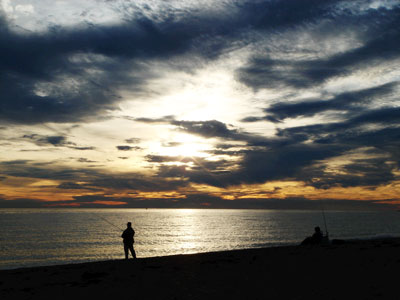All Nonfiction
- Bullying
- Books
- Academic
- Author Interviews
- Celebrity interviews
- College Articles
- College Essays
- Educator of the Year
- Heroes
- Interviews
- Memoir
- Personal Experience
- Sports
- Travel & Culture
All Opinions
- Bullying
- Current Events / Politics
- Discrimination
- Drugs / Alcohol / Smoking
- Entertainment / Celebrities
- Environment
- Love / Relationships
- Movies / Music / TV
- Pop Culture / Trends
- School / College
- Social Issues / Civics
- Spirituality / Religion
- Sports / Hobbies
All Hot Topics
- Bullying
- Community Service
- Environment
- Health
- Letters to the Editor
- Pride & Prejudice
- What Matters
- Back
Summer Guide
- Program Links
- Program Reviews
- Back
College Guide
- College Links
- College Reviews
- College Essays
- College Articles
- Back
Why Alexander Lake Should Be Stocked With Largemouth Bass
In Reno, Nevada there is a plethora of environmental issues taking root. Wild mustangs roam the hills of the Damonte Ranch community and get dangerously close to speeding cars, the new road Veteran’s parkway cut through beautiful wetlands, trash is frequently seen among the cattails in Alexander Lake and worst of all nobody seems to notice. The environment in Reno and specifically, southeast Reno, is deteriorating and until people take notice it will continue to be destroyed. To protect Reno’s environment, we must first and foremost instill a care for the environment in the people of Reno. One way to do this is to stock Alexander Lake with Largemouth bass.
The few people that fish at Alexander Lake often fish without permits because Alexander Lake the Nevada Department of Wildlife does not stock or monitor Alexander Lake. A one-year junior hunting and fishing combo license for Nevada costs $16 and an adult resident one-year fishing license costs $41. Using this and the fact that approximately 20 different adults can be seen fishing at Alexander Lake every week it can be reasonably estimated that stocking Alexander lake with Largemouth bass and checking for permits would yield at least $8000. This would more than cover the cost of stocking largemouth bass and may allow the Nevada Department of Wildlife to use the surplus for conservation of the environment.
“Government agencies sometimes stock fish in water sources that have decreasing fish populations.” (Hopkins, 32) However, government agencies may also stock fish to prevent depleting sizes of fish. “Fishing in your national parks is managed and regulated by the National Park Service and State and Federal partners to conserve fish while providing fishing opportunities. Regulations within parks allow for reasonable use and enjoyment of fish resources without affecting the health of fish populations.” (“Explanation of Fishing Regulations.” National Parks Service, U.S. Department of the Interior). For example, regulations may include a minimum size of a fish to maintain the fish population. However, regulations do not usually have a maximum size to maintain fish size. When the largest fishes in a pond are taken as trophy fish this takes out “good genes” and lessens the quality of the gene pool of a fish population. Like regulating fish sizes to maintain the population, stocking fish can introduce larger fish to replenish and maintain the gene pool. In this way, stocking Alexander Lake with fish would improve the size and number of fish and attract more fisherman.
It may seem that to stock Alexander Lake would do more harm than good, that it would put the pond out of balance, this is simply not true. Increasing the number and size of largemouth bass would consequently increase the number of fishermen frequenting the pond. This increase in the capture of bass in Alexander Lake would negate the negative impact of an increased bass population that may occur.
Southeast Reno was once stable, diverse, flourishing wetlands. Now, in recent years, after golf courses, apartments, roads, and flat out trash the environment has been severely damaged. In fact, trout could once be found near where Veterans Parkway now sits. “The extinction of a species may have unforeseen impacts, sometimes snowballing into the destruction of entire ecosystems.” (“Explanation of Fishing Regulations.” National Parks Service, U.S. Department of the Interior). Alexander Lake is southeast reno’s last stand, and it’s at the crossroads. Will it live on to foster care for the environment and to provide wholesome recreation for countless people, or will it be filled with trash and left to rot?

Similar Articles
JOIN THE DISCUSSION
This article has 0 comments.
